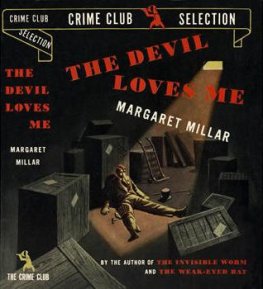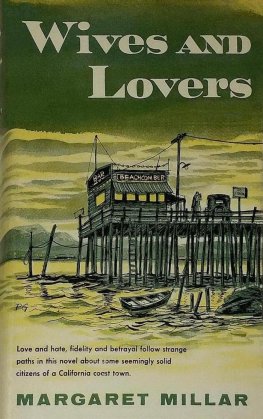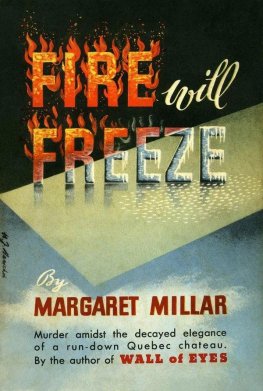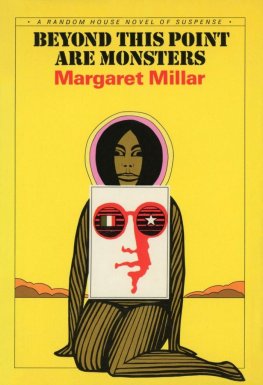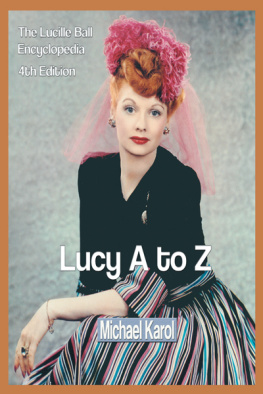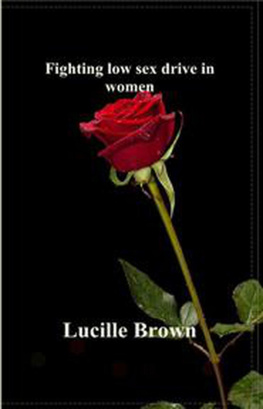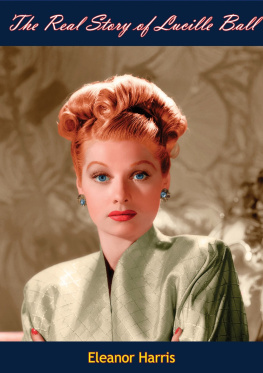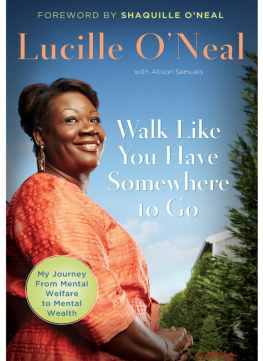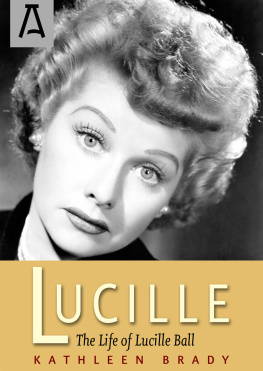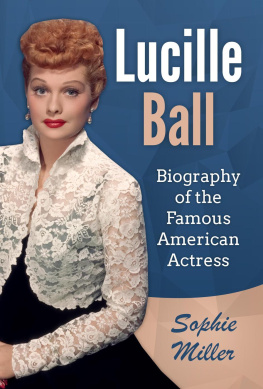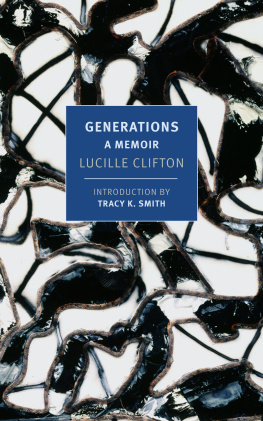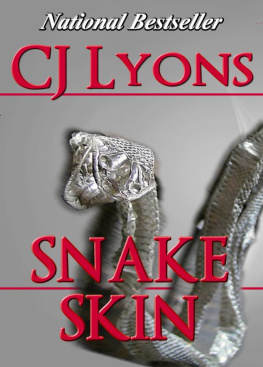Margaret Millar
The Iron Gates
The dream began quietly. She and Mildred were in a room and Mildred was curled up in a chair, writing.
What are you writing, Mildred? Lucille said. You are writing, what are you writing?
Slowly, dreamily, Mildred smiled, Nothing, I have finished, I have quite finished, and she rose and walked through the window into the snow.
You mustnt go out just in your dress like that, Mildred, youll catch cold.
No... Im going away... Ive quite finished...
No, its dark, its snowing.
But she walked away inexorably, leaving no tracks, casting no shadow.
Mildred, come back! The back of your head is open!
No...
Youre bleeding. Youll make the park untidy.
Im going away, Mildred called back, softly. Goodbye, dear. Good-bye, Lucille.
She walked on, between the trees, and up and over the hills. With each step she became smaller and smaller, yet more and more distinct, as if neither time nor space had the power to blur her details. Now and then she turned around and she was always smiling, like a little doll.
Little doll! Lucille cried. Little doll...
Away, came the answer, soft as a whisper but so clear. Good-bye good-bye, dear...
Eternally she walked and bled and smiled and grew clearer and clearer.
Lucille awoke, suffocating, sick with horror at this tiny thing moving across her mind, no bigger than a finger, a match, a pin. She sprang from her bed and pulled aside the curtains that shrouded the windows. She looked out, and there was the park, there were the trees, the hills, the trackless snow. But Mildred had been dead for sixteen years.
Somewhere in the distance a church bell rang out the Sunday sound of a city. She became suddenly conscious of how grotesque she would appear if Andrew should walk in and find her like this, crouched beside the window, scanning the snow for his dead wife.
She rose and turned, and caught sight of herself in the mirror. She had forgotten the mirror was there, and for an instant, before she had time to set her face, she seemed a stranger, a lady in a mirror, no longer young, wearing a blue nightgown, with her red-gold hair swinging against her shoulders in two long thick braids. She paused to look at the stranger, smiling faintly because it was only a game, yet uneasily because games were never just games, Andrew said, there had to be some motive behind them. Perhaps even after fifteen years that was how she still felt, like a stranger in the house, visiting someone elses husband and someone elses children.
Oh, nonsense, she said aloud, and walked quickly toward the mirror and the stranger moved and grey and became herself. What utter nonsense!
Her tone was the one she used with Andrew and the children, half-severe, half-humorous, completely understanding. The Im-smiling-but-I-mean-it voice. The sound of it was so familiar that automatically the accompanying facial pattern sprang into place. Her eyes lost the strained anxious look and became kindly and intelligent, her full firm mouth softened, one eyebrow rose a little.
Thats better. This is how I really am. This is me. Lucille Morrow.
Mildred wasnt important any more, though her portrait still hung on the living-room wall, and now and then she bobbed up in dreams. A fat kewpie doll carved out of soap, Lucille thought. Something doughy and sticky you couldnt get off your hands...
She picked up a brush and began to brush her hair vigorously. With each stroke the dream receded and the doll blurred and melted;
Her moment of insecurity had passed and left her with a more conscious sense of possession. This was her hand, her brush, her house, her husband whistling in the adjoining room. Only the children could never belong to anyone but Mildred. For Andrews sake Lucille had tried to like them and make them like her in return. But they remained Mildreds children and she was uneasy with them and the most she ever achieved was an armed truce.
Still, they were no longer children. Polly was getting married this week, and some day Martin would marry, and she and Andrew would be left alone in the house. With Edith, of course, but she didnt count.
Her hand paused. She gazed into the mirror and saw the future stretching out in front of her, a length of red-velvet carpet covered with a marquee.
She dressed quickly and coiled her hair in a coronet around her head. Like a queen she moved out into the hall, proudly but cautiously, as if she must test the red-velvet carpet and measure the height of the marquee. She walked down the stairs enjoying the sound of her taffeta morning coat following her with obsequious little noises like a genteel servant.
Upstairs, a door slammed and Andrews voice shouted, Lucille! Wait a minute, Lucille!
She paused at the bottom of the steps.
What is it, Andrew?
Whats happened to my scarf?
Lucille checked an impulse to say, What scarf? She said, All your scarves are in your bureau drawer.
All except this one and this is the one I want to wear.
Naturally.
What did you say?
Lucille raised her voice. I said, naturally, the one you want to wear is the one that isnt there.
Its the other way around, Andrew shouted. The one I want to wear is the one...
All right, Lucille said, smiling. What does it look like?
Blue. Dark blue with little gray things on it. He came to the head of the stairs and gesticulated. Little gray things like this.
He was a tall, gray-haired man, nearly fifty now, but he was still slim and he had the quick vigorous movements that characterized his son Martin and his sister Edith. His features were thin, almost delicate, but he had large soft brown eyes which gave his face an oddly guileless expression and caused him trouble now and then with his women patients. Like many really good-natured men, when he tried to look cross he overdid it. He sent a ferocious scowl down the steps at his wife.
Somebody gave it to me for Christmas last year, he said.
I did, Lucille said serenely. And its not blue, its black. Have you looked under your bed?
Yes.
Andrew, why? Why do you always look under beds for tilings first?
Its the logical place. So much room. Lucille, you wouldnt come up and...
I wouldnt, Lucille said. If I came up and found it for you it would only make you crosser.
I promise.
No. She turned calmly and walked away, flinging over her shoulder, Try the cedar closet in the hall.
Ignoring Andrews noises of distress she went into the dining room.
Edith and Polly were already at breakfast. Edith was buttering a piece of toast with the precise contemptuous movements of one who despises food as a necessary evil to be gotten over with as quickly as possible. Polly, a cup of coffee in front of her, was smoking and gazing dreamily out of the window.
Good morning, Edith, Lucille said. She bent over Ediths chair and the cheeks of the two women touched briefly. It was a routine of long standing. They were fond of each other, in a dry expedient way, for they were of the same age and they were interested in the same thing, Andrew. Good morning, Polly.
Morning, Polly said, without taking her eyes from the window.
Good morning, Edith said. Sleep well?
Fine.
More than I did. Her voice was so high and sharp that it seemed ready to break into hysteria, or snap with a death twang like a violin string. Every year it seemed to Lucille that Ediths voice got higher, that the string was pulled more and more taut and played a thin sinister obbligato over the most ordinary remarks.
What is all the shouting about? Edith said. If you want fresh toast, ring for Annie. I told her to have it ready. Sometimes I think Andrew likes to shout simply for the sake of shouting.

![Margaret Millar The Iron Gates [= Taste of Fears]](/uploads/posts/book/905848/thumbs/margaret-millar-the-iron-gates-taste-of-fears.jpg)
